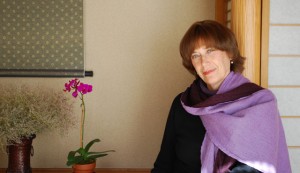Schwarcz Invited Speaker in Hong Kong

Vera Schwarcz, the Mansfield Freeman Professor of East Asian Studies, presented a paper on Jan. 20 titled “To Honor the Language of Truth: Reflections on F. Nietzsche, H.N. Bialik, Chen Yinke and Zhang Longxi” at the City University of Hong Kong. Schwarcz, who also is a professor of history, professor of East Asian Studies, was an invited speaker at the international conference on “Cross Cultural Studies: China and the World.”
Schwarcz’s essay will be published as part of a book on 2012.
Schwarcz wrote about her experience in Hong Kong, below:
The Dao of Torah in Hong Kong
Now that we have the Dao of Physics and the Dao of Pooh, The Dao of Cooking and even the Dao of Sex, it may be useful to see how the Dao of Torah unfolded for one traveler in Hong Kong…. I was attending a conference on nothing explicitly Jewish: Cross-Cultural Studies: China and the World. Yet the breadth of vision I gained from old friendships and new encounters was more apparent than in many other of my previous four decades of China travel. This experience strengthened my conviction that is good to explore a path of concrete engagement with other cultures while reflecting consciously upon one’s native spiritual terrain. It is one thing to know intellectually that universal values are not in conflict with particular traditions. It is another matter to appreciate it with one’s entire being.
That is the essence of the Dao: a journey, a path that brings you closer to a core that matters. It matters infinitely. I discovered this even before I arrived in Hong Kong, the week before the Dragon New Year. I had let the conference organizers know that I keep kosher and observe Shabbat. I also knew how to wish them xin nian kuai le (happy new year) and other blessings for good fortune.
The response was generous, interested and respectful. It made the subject of our academic conversations about the dignity of cultural comparisons more real and truly anchored in ethical commitments. The Dean of the City University of Hong Kong opened our conference with a poignant reminder that this gathering was touching on a key dilemma for Hong Kong: How to hold on to the core values of freedom and fair plays as the political embrace and economic might of China becomes more and more intense… A shadow of worry floated across his eyes and face as he spoke.
It is with such high stakes on the table that I presented my paper about the challenge of recovering a language of truth by citing Nietzsche, the Hebrew poet Hayim Nachum Bialik, the historian Chen Yinke and the literary scholar Zhang Longxi. While the talk meandered through textual thickets, the responsive chord it touched in the audience was anything but academic. Clearly, seeking truth was a sensitive and important issue in the minds of the students and teachers who had gathered for this conference—especially since the communist party journal in Beijing also calls itself “Seek Truth” (qiu shi)…
As an “outsider” who was also a friend, I was able to name the elephant in the room a bit more openly than native scholars…
Friday afternoon I left early, in time for sundown and preparations for Shabbat. I did not attend the festive concluding banquet by the harbor bathed in red lights and dragon images for the coming spring festival. In my hotel room, I lit candles, ate the meal I brought from home. Suddenly, 25 hours opened to simply reflect on the intense and marvelous process of connecting disparate worlds. A former Wesleyan student working for a human rights organization came to visit me on Shabbat morning. I learned about how her soft-spoken Christian boss manages to get prisoners out of China and affects the real possibility of a rule of law on the mainland without histrionics. My students spoke also about shutting down her Facebook page, writing letters by hand, spending more time on her inner life, on making dreams more real. It was a conversation that had the flavor of Shabbat built in from within as it were. In this spirit, I learned as much from my student (as the Mishna in Prikei Avot also reminds me) as from the distinguished scholars who came to our conference from Sweden, Brazil and the US.
It was the Dao of Torah in Hong Kong that opened up breathing space, thinking time and made the five day journey more spacious than if I had eaten out at all the good restaurants in the city and spent time shopping in the ritzy malls. As it was, I walked through the flower market with its acres of orchids for the spring festival, listened to the chirping of canaries in the bird garden. It cost nothing and filled the soul.
The Daoists left the world with a lot of wisdom about the simpler life. The Torah I keep as a Jew helped me hear their words more deeply. Here was a “cross culturing” that I had not savored as fully before.

